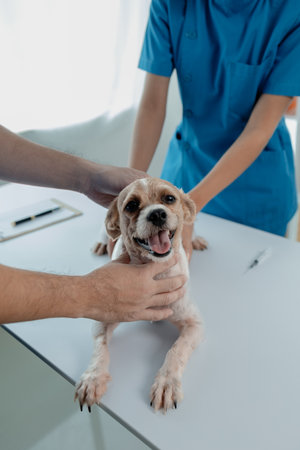Understanding Stress in Gerbils
Gerbils are popular small pets in the UK, cherished for their playful nature and curious personalities. However, like all animals, they can experience stress, which may impact their health and wellbeing. In British households, common causes of stress in gerbils include sudden changes in environment, lack of enrichment, loud noises such as vacuum cleaners or televisions, and improper handling—especially by young children who may not yet know how to interact gently. Other stressors might stem from living alone (as gerbils are highly social creatures), exposure to other household pets like cats or dogs, or poor cage placement, such as being kept in high-traffic areas or near draughty windows. Manifestations of stress can be subtle: a stressed gerbil may exhibit repetitive behaviours such as bar chewing or excessive digging, become withdrawn or unusually aggressive, show signs of fur loss due to over-grooming, or experience changes in eating habits. Understanding these typical UK household scenarios and their effects on gerbils is essential for providing a supportive and calming environment.
2. Identifying Signs of Stress
Recognising when your gerbil is feeling stressed is crucial for their well-being. In the UK, owners should be particularly mindful of both behavioural and physical signs, as stress can often be overlooked due to the gerbil’s small size and subtle cues. Below are some common symptoms to watch out for, alongside examples relevant to British households:
Behavioural Signs
| Sign | Description | UK-specific Example |
|---|---|---|
| Bar Biting | Repeatedly gnawing on cage bars or enclosure edges. | May occur if the enclosure is near a busy hallway or in a noisy kitchen during tea time. |
| Excessive Digging | Constantly scratching at bedding or corners, often without purpose. | Might increase when placed near washing machines or vacuum cleaners, common in UK utility rooms. |
| Aggression | Nipping or chasing cage mates more than usual. | Frequently seen if gerbils are housed together without adequate space – a concern in smaller British flats. |
| Lethargy | Lack of interest in food, toys, or interaction. | Might become more noticeable during colder months when homes are kept warmer indoors. |
Physical Symptoms
- Piloerection: Raised fur along the back, which may look like ‘fluffing up’, especially after loud noises such as fireworks during Bonfire Night.
- Weight Loss: Gradual decrease in weight due to reduced appetite, sometimes seen after disruptions like home renovations or moving house—both common sources of stress in the UK.
- Bald Patches: Fur loss from over-grooming, often linked to frequent handling by young children during school holidays.
- Trembling or Shaking: Gerbil appears jittery or unsteady, possibly after a thunderstorm or unexpected visit from other pets (such as dogs commonly walked in British neighbourhoods).
When to Seek Veterinary Advice?
If you notice any combination of these signs persisting for more than a few days, especially alongside changes in eating or toileting habits, it’s best to consult with a local veterinary surgeon experienced with small mammals. Early recognition and intervention can make all the difference in helping your gerbil regain their typical lively character.

3. Environmental Factors and Enrichment
British gerbil owners must pay special attention to the environmental factors that can affect their pets stress levels. The UKs variable climate, with its frequent rain, humidity, and occasional cold snaps, can be a source of discomfort for gerbils if not properly managed. Gerbils originate from arid regions and are sensitive to damp or chilly conditions. Therefore, it’s crucial to keep their enclosures in a warm, dry room away from draughts and direct sunlight. Avoid placing cages near windows or radiators where temperature fluctuations are common.
Typical British homes may have central heating or double glazing, which can create a stable indoor climate but sometimes lead to air that is too dry or too warm. Always monitor the temperature and humidity around your gerbil’s habitat. Aim for temperatures between 18-24°C, as anything colder or hotter could increase stress and susceptibility to illness.
Enclosure setup also plays a vital role in reducing stress. Standard pet shop cages in the UK are often too small for gerbils’ natural behaviours. Opt for a large glass tank or gerbilarium with at least 20 gallons of space for a pair of gerbils. Provide plenty of deep bedding (around 15cm) so they can dig and tunnel—a key instinct that helps them feel secure.
Enrichment is essential to prevent boredom and associated stress behaviours such as bar chewing or over-grooming. British pet shops offer a variety of safe toys: cardboard tubes, wooden chew blocks, sand baths (not dust!), and platforms for climbing all encourage healthy activity. Rotate enrichment items regularly to maintain interest and stimulate natural behaviour patterns.
Finally, consider the social needs of your gerbils. In Britain, it is standard practice to keep gerbils in same-sex pairs or small groups, as they are highly social creatures. However, overcrowding or mixing unfamiliar individuals can lead to aggression and stress. Always introduce new companions slowly under supervision.
By understanding how British weather, housing styles, and typical pet-keeping practices affect your gerbils—and by providing an enriched environment tailored to their needs—you’ll help ensure their happiness and wellbeing.
4. Veterinary Assessment and When to Seek Help
Knowing when to involve your local vet is essential for the wellbeing of your gerbil. Not all stress symptoms can be managed at home, and early intervention from a qualified veterinary professional can make a significant difference. Here’s how you can approach this important step in gerbil care.
When Should You Contact a Vet?
While minor changes in behaviour may resolve with simple adjustments at home, there are certain signs that warrant immediate veterinary attention:
| Sign or Symptom | Recommended Action |
|---|---|
| Persistent hiding or lethargy | Contact your vet within 24 hours |
| Loss of appetite for more than 24 hours | Seek prompt veterinary advice |
| Aggression or self-mutilation | Book a same-day appointment if possible |
| Respiratory distress (e.g. wheezing) | Urgent veterinary attention required |
| Unexplained weight loss or abnormal droppings | Arrange a check-up soon |
How to Find an RCVS-Accredited Practice
The Royal College of Veterinary Surgeons (RCVS) sets the standard for veterinary care in the UK. To find an accredited practice near you:
- Visit the RCVS Find a Vet website.
- Search by your postcode or town for practices specialising in small mammals or exotics.
- Look for the RCVS accreditation logo which indicates high standards of animal care and client service.
- If possible, choose a practice with experience in treating small rodents like gerbils.
What to Expect During a Consultation
A typical veterinary consultation for a stressed gerbil will include:
- A thorough history – the vet will ask about your gerbil’s environment, recent changes, diet, and behaviour.
- A physical examination – checking for signs of illness, injury, or external parasites.
- Discussion of husbandry – advice on housing, enrichment, and social needs specific to UK recommendations.
- Treatment plan – this might involve medication, dietary changes, or further diagnostic tests if needed.
- Follow-up – guidance on monitoring progress and when to return if symptoms persist or worsen.
Your Role as an Owner
You are your gerbil’s best advocate. Keeping notes on behavioural changes and being proactive about seeking help will ensure your pet receives timely and effective care. British vets are used to working collaboratively with pet owners, so never hesitate to ask questions or seek clarification during your visit.
5. Home Management and Stress Reduction
Establishing a Consistent Routine
Gerbils thrive on routine, so it’s essential to keep their daily schedule as regular as possible. Try to feed, clean, and interact with your gerbils at the same times each day. Sudden changes in their environment or care can be stressful for them. In the UK, where daylight hours vary across seasons, consider using blackout blinds or positioning cages away from windows to maintain consistent lighting, especially during the long summer days or darker winters.
Creating a Calm Environment
Place your gerbil enclosure in a quiet part of the house, away from loud televisions, radios, or frequent foot traffic. Avoid placing cages near doors that open often or close to radiators and draughty windows – British homes can get chilly or stuffy depending on the season. Make sure their cage is secure from curious pets like cats or dogs, who might unintentionally frighten your gerbils.
Enrichment and Interaction
Provide plenty of opportunities for mental and physical stimulation. In the UK, you can easily find wooden tunnels, cardboard tubes (loo roll inners work well!), and sand baths at pet shops. Rotate toys regularly to keep things interesting but avoid overcrowding the cage. Handle your gerbils gently and let them come to you—avoid picking them up abruptly or chasing them around their enclosure as this can heighten stress levels.
Temperature and Bedding Considerations
The British climate means indoor temperatures can fluctuate. Gerbils are comfortable at 20–22°C (68–72°F). Use paper-based bedding rather than wood shavings containing aromatic oils (like pine), which are commonly sold in the UK but may irritate gerbils’ respiratory systems. Ensure bedding is deep enough for tunnelling—a natural behaviour that helps relieve anxiety.
Recognising the Need for Companionship
Gerbils are social creatures and usually do best in pairs or small groups of the same sex. If you notice signs of loneliness or boredom, such as repetitive behaviours or excessive digging at cage walls, consider rehoming a companion from a reputable British breeder or rescue centre—always introduce new gerbils gradually and monitor interactions closely.
When to Seek Veterinary Advice
If stress-related symptoms persist despite your efforts at home, consult a vet with experience in small mammals—many practices across the UK now have specialists who understand the unique needs of gerbils. Early intervention can prevent minor issues from becoming serious health concerns.
6. Preventative Care and Wellbeing
Ensuring your gerbils remain happy and healthy is all about proactive care. A well-planned routine, balanced diet, and regular health checks form the backbone of stress prevention in gerbils. Below are some practical suggestions and trusted UK resources to help you maintain your pets’ wellbeing.
Daily Routine and Environmental Enrichment
Consistency is key for gerbils. Establish a daily routine for feeding, cleaning, and handling to reduce anxiety. Offer a spacious enclosure with plenty of tunnels, bedding for burrowing, and chew toys to encourage natural behaviours. Rotate toys and rearrange their habitat regularly to provide mental stimulation, but always make changes gradually to avoid stress.
Dietary Considerations
Feed your gerbils a high-quality, species-appropriate diet. Look for complete gerbil mixes available from reputable UK pet shops or consult brands recommended by the RSPCA. Fresh vegetables like carrot, broccoli, and apple (in moderation) can be offered as treats. Avoid foods high in sugar or fat, and always provide clean, fresh water using a bottle with a metal spout.
Routine Health Checks
Check your gerbils weekly for signs of ill health: monitor their weight, coat condition, teeth, eyes, and movement. Early detection makes treatment more effective. If you notice anything unusual—such as hair loss, lethargy, or changes in appetite—seek advice from a vet experienced with small mammals. The Royal College of Veterinary Surgeons (RCVS) Find a Vet tool can help you locate local practices specialising in exotics.
Useful UK Resources and Organisations
By following these guidelines and making use of reliable British resources, you’ll be well-equipped to keep your gerbils content and resilient against stress-related issues. Regular attention and preventative care truly make all the difference in fostering long-term wellbeing for your furry friends.


